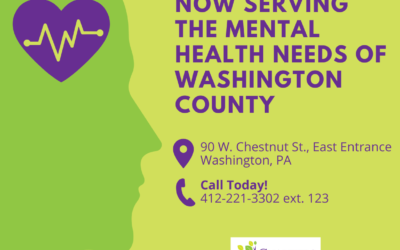 April is Alcohol Awareness month. During this month, Chartiers Center would like to introduce you to the staff who work closely to support our consumers on their recovery journey.
April is Alcohol Awareness month. During this month, Chartiers Center would like to introduce you to the staff who work closely to support our consumers on their recovery journey.
Today we would like to introduce you to Jennifer O’Brien, MA. Jen is the Clinical Administrator of Recovery Treatment Services. She has worked in the field for 24 years and she is a licensed Certified Advanced Alcohol and Drug Counselor (CAADC).
Jen specializes in Substance Use Disorders, Cognitive Behavioral Therapy, Male and forensic populations, Moral Reconation Therapy, Motivational Interviewing, and S-AM-TREM (Substance Abuse – Men-Trauma Recovery Empowerment Model).
She has worked in Substance Abuse treatment and HIV/HCV prevention since 2009 in both outpatient and inpatient residential treatment facilities. Her previous positions include work as the Executive Director of The Harbor Light Center in Pittsburgh, a long-term residential treatment facility for men with substance use issues, and she was the Clinical Supervisor for RHD’s C.O.R.E. Program which is similar.
She choose to work in the substance use field very early on in her career when she realized you cannot always work primarily with mental health consumers without understanding how substance use issues impact their lives in one way or another. Jen began to work in a MISA (Mental Illness and Substance Abuse) Partial Hospitalization Program in 2006 and that was when she realized the impact that substance use really had in the world of mental health and how the two really affected one another. The rest she said is history.
At Chartiers Center, Jen will oversee the Outpatient Programs and the Substance Use Outpatient Program. For this “In the Spotlight” article Jen was asked a series of questions in an effort for our consumers to get to know her better.
- For someone considering therapy what do you want them to know before their first therapy session?
Therapy is a process, it takes time, and there are no guarantees, magic pills, or simple solutions. Be patient, be open-minded, and allow yourself to take suggestions from your treatment team. I know it is hard and there are going to be times where you may feel like you want to give up…don’t. Backslides happen. Slips happen. Relapse happens. There is no straight road to recovery and there is no one road to recovery. It is a long, curvy, bumpy road full of roadblocks and very big potholes, but you can do it. If people could not recover, there wouldn’t be success stories and I certainly wouldn’t still be doing this work after 24 years. Keep coming back, it works if you work it, so keep working it, because you’re worth it!
- What does a therapy session look like?
It looks different for every person. But essentially Therapy is a professional relationship that empowers diverse individuals, families, and groups to accomplish mental health, substance use, wellness, education, and career goals. Each client works independently with their counselor to work collaboratively to establish goals together which are specific, measurable, attainable, realistic, and trackable. The client and the counselor do this together. The client has most of the input into this process.
- What prompts people to seek help?
They want change internally. They don’t like how they are feeling, and they want to feel different. They are not comfortable in their discomfort anymore and internally they are motivated to take a healthy risk and do something different.
- What are treatment options, and can it include my family?
Absolutely! If your family is healthy and a good support and would benefit your recovery, you and your counselor can work together to determine how you would like to incorporate them into your sessions. Treatment options would include individual or group therapy sessions (IOP).
- Do you want to share an inspiring client story and/or a story that “makes it worth getting up in the morning” for the clinician.
I had a client who really struggled with his sobriety. He promised me that he was “going to get it this time” and I reminded him it was a marathon, not a sprint and if he did, great, if not, we would be here to try again. He said, “when I get this, I am going to come back and give you my 30-day tag, you’ll see.” When he got his 1-year sober, something he had never done, he came back to the program and gave me his 30-day tag. I did not want to take it from him, but he insisted. That was in 2011. I still have it hanging in my office to this day and he is still sober.
- What five words describe you?
Dedicated, tenacious, empathetic, compassionate, knowledgeable, and an advocate.
- Do you have a favorite book or quote that you share with people when asked.
“Do, or do not. There is no try.”
- Is there something impactful, you would like to share? Maybe a success story or something important you want clients to know about?
Recovery is a marathon, not a race. Don’t be discouraged. It requires a change of thinking and behaviors and that takes time and patience. Stick with it. Recovery can and does happen. You can do this!
- Your pick. Is there something else you would like to share?


